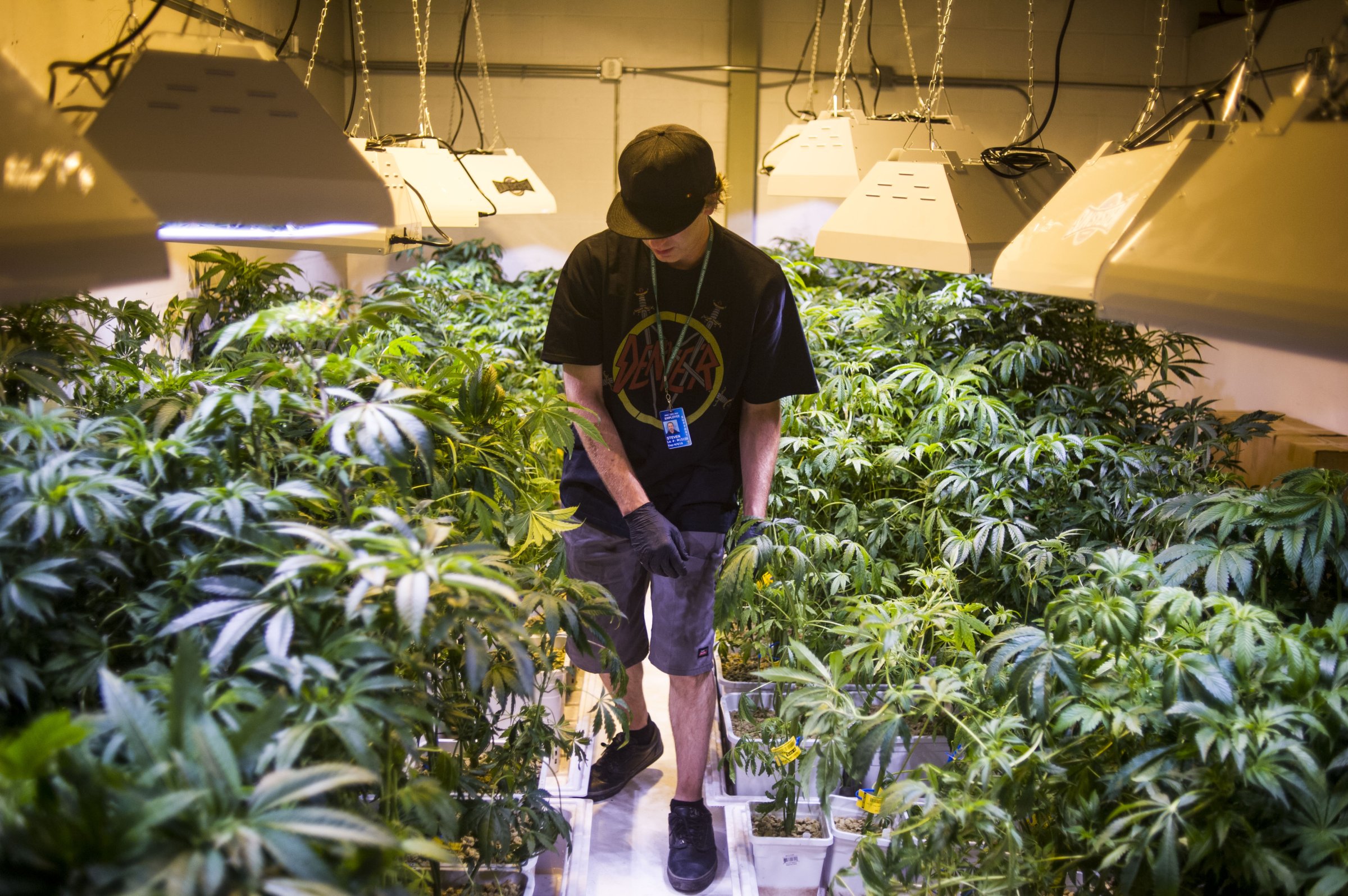
If you want to know just how crazy marijuana makes some people, look no further than the race for governor of Colorado, where Democratic incumbent John Hickenlooper is neck and neck with Republican challenger Bob Beauprez. They’re high-profile examples of a growing backlash against pot, even as none of the scare stories about legal weed are coming true. Drug-addled addicts embarking on crime sprees? Not in Denver. Stupefied teens flunking tests in record numbers? Uh-uh. Highway fatalities soaring? Nope.
About the worst you can say so far is that New York Times columnist Maureen Dowd wigged out while high. But she does that from time to time when she’s sober as a judge too.
Neither Hickenlooper nor Beauprez has cracked 50% with voters, which makes sense since neither candidate can stomach the fact that 55% of Coloradans voted to legalize recreational pot in 2012. “I’ll say it was reckless” to legalize pot, averred Hickenlooper at a recent debate. Beauprez goes further still. When asked if it’s time to recriminalize marijuana, he said, “Yes, I think we’re at that point … where the consequences that we’ve already discovered from this may be far greater than the liberty … citizens thought they were embracing.”
In fact, sales and tax revenues from legal pot continue to climb, and more people now buy recreational pot than medical marijuana, even though the former is taxed at much higher rates. Pot has kicked about $45 million into tax coffers since it became legal this year and is projected to come in between $60 million and $70 million by year’s end. Murders in the Denver area, where most pot sales take place, are down 42% (so is violent crime overall, though at a lower rate) and property crime is down 11.5%.
There’s more bad news for alarmists: Pot use by teenagers in Colorado declined from 2001, when the state legalized medical marijuana, to 2013, the last full year for which data are available. When medical marijuana was introduced, critics worried that any form of legalized pot would increase usage among kids, but the reverse happened. It remains to be seen if that trend continues in the face of legal recreational pot, but Colorado teens already use dope at lower rates than the national average. So much for the Rocky Mountain High state.
Yet Colorado pols are in good company in harshing on legal weed. The recovering addict and former Congressman Patrick Kennedy heads Safe Alternatives to Marijuana (SAM) and categorically argues, “we cannot promote a comprehensive system of mental-health treatment and marijuana legalization.”
Researchers who find that regular marijuana use among teenagers correlates with mental problems, academic failure and other bad outcomes get plenty of ink, even though such studies fail to show causation. Underperforming students and kids with problems abuse alcohol and smoke cigarettes at higher rates, after all. In any case, even advocates of legalization argue that teens shouldn’t be smoking pot any more than they should be drinking. Given the drug’s pariah status for decades, it’s not surprising that the science is both unsettled and highly politicized.
Will legalizing pot increase access to a drug that law-enforcement officials concede has long been readily available to high schoolers? “Criminalizing cannabis for adults has little if any impact on reducing teens’ access or consumption of the plant,” argues the pro-legalization group NORML, a claim supported by declining teen use during Colorado’s experience with medical marijuana. Certainly pot merchants who are registered with and regulated by the state are more likely to check IDs than your friendly neighborhood black-market dealer.
At least this much seems certain: In a world where adults can openly buy real pot, you’re also less likely to read stories headlined “More People Hospitalized by Bad Batch of Synthetic Marijuana.” And support for legalization isn’t fading. The market-research firm Civic Science finds that 58% of Americans support laws that “would legalize, tax, and regulate marijuana like alcohol.”
That figure obviously doesn’t include either candidate for governor of Colorado. But just like the rest of the country, whoever wins that race will have to learn to live with pot being legal, crime being down, traffic fatalities declining and fewer teens lighting up.
More Must-Reads From TIME
- The 100 Most Influential People of 2024
- Coco Gauff Is Playing for Herself Now
- Scenes From Pro-Palestinian Encampments Across U.S. Universities
- 6 Compliments That Land Every Time
- If You're Dating Right Now , You're Brave: Column
- The AI That Could Heal a Divided Internet
- Fallout Is a Brilliant Model for the Future of Video Game Adaptations
- Want Weekly Recs on What to Watch, Read, and More? Sign Up for Worth Your Time
Contact us at letters@time.com